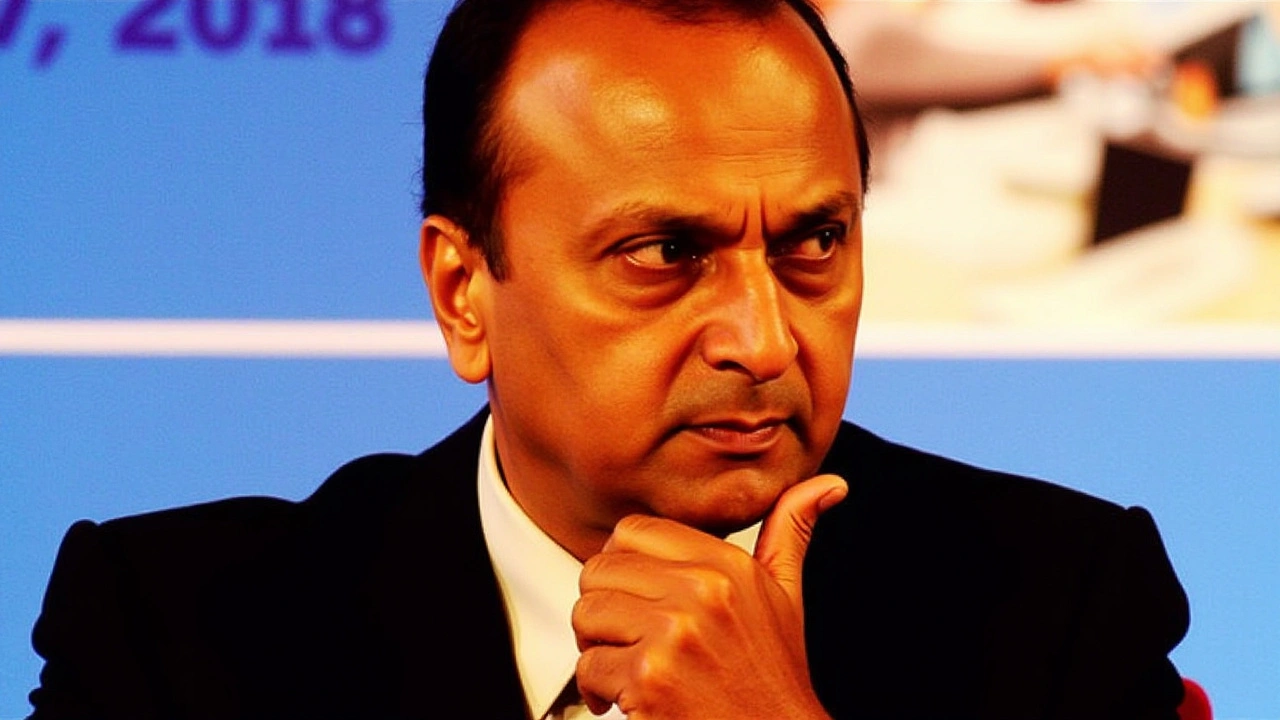
Indian industrialist Anil Ambani, once one of the world's richest men, finds himself at a critical crossroad after a damning verdict by the Securities and Exchange Board of India (SEBI). On August 24, 2024, SEBI announced a ban on Ambani and several senior executives from Reliance Power Ltd., prohibiting them from engaging in any securities transactions. The watchdog's decision follows an extensive investigation into alleged financial irregularities and misrepresentation of financial statements by Ambani's companies, particularly Reliance Power. This development has sent ripples through India's financial markets, raising questions about corporate governance and regulatory oversight.
SEBI's Investigation
SEBI's investigation into Reliance Power revealed serious discrepancies in the company's financial reporting. According to the market regulator, Reliance Power misstated its financial health, creating a misleading picture for investors. These alleged irregularities came to light as part of SEBI's broader efforts to ensure transparency and accountability in the financial markets. As a result, SEBI imposed a ban on Anil Ambani and other key executives, barring them from buying, selling, or dealing in securities for a specified period.
The Fallout
The implications of SEBI's decision are profound for Ambani's business empire. Reliance Power, a flagship company, is now under intense scrutiny from both regulators and investors. The ban on Ambani and his executives restricts their ability to engage in essential financial activities, casting a shadow over their business operations. Additionally, this move has raised concerns about the potential impact on the Indian stock market. As markets react to the news, investor confidence may be shaken, potentially leading to volatility in stock prices.
Legal Recourse
In the wake of SEBI's decision, Anil Ambani's legal team is gearing up for a battle. They are likely to review the SEBI order meticulously and consider various legal avenues to challenge the ban. Legal experts believe that Ambani may opt to file an appeal in the Securities Appellate Tribunal (SAT) or even the Supreme Court of India. The outcome of these legal proceedings will be closely watched, as they could set a precedent for future cases of corporate misconduct in India. The legal strategies employed and the arguments presented will be critical in determining whether Ambani can overturn the ban or face further repercussions.
Corporate Governance in Focus
SEBI's decisive action against Anil Ambani underscores the growing importance of corporate governance and regulatory oversight in India's financial ecosystem. This case highlights the need for companies to adhere to stringent financial reporting standards and maintain transparency with investors. The watchdog's intervention signals a shift towards a more robust regulatory framework aimed at protecting investor interests. It also serves as a warning to other corporate leaders about the consequences of financial misrepresentation and misconduct. As the dust settles, there will be increased scrutiny on how companies manage their financial disclosures and governance practices.

Investor Reactions
Investors and market analysts are keeping a close eye on the developments surrounding Anil Ambani's ban. The fallout from SEBI's decision could have broader implications for the Indian stock market. Some analysts believe that the ban may lead to a temporary dip in investor confidence, particularly for companies associated with Ambani's business group. However, others argue that such regulatory actions are necessary to restore trust in the markets. They emphasize the need for strong regulatory oversight to ensure that companies operate with integrity and transparency. The coming weeks will be crucial in determining how the market adjusts to this development and whether investor confidence can be quickly restored.
Impact on Reliance Power
Reliance Power, a significant entity in Anil Ambani's business conglomerate, is at the center of this controversy. The company's financial misstatements have not only led to regulatory action but also put its operations under the microscope. Reliance Power's ability to secure funding, enter into contracts, and execute projects may be impacted by the ongoing scrutiny. The ban on its top executives further complicates the situation, as their restricted ability to engage in securities transactions could hinder the company's strategic decisions. Stakeholders will be closely monitoring how Reliance Power navigates these challenges and whether it can restore its credibility in the market.
Broader Implications
The repercussions of SEBI's ban extend beyond Anil Ambani and Reliance Power. This case serves as a reminder of the critical role that regulatory bodies play in maintaining the integrity of financial markets. It also highlights the potential consequences for business leaders who fail to adhere to ethical and legal standards. The increased focus on corporate governance and transparency is expected to have a lasting impact on how companies operate in India. As the country continues to attract global investors, maintaining a trustworthy and transparent financial environment will be paramount. SEBI's actions may pave the way for more stringent regulations and oversight in the future, ultimately benefiting the broader market.
The Road Ahead
As Anil Ambani contemplates his next steps, the road ahead is fraught with challenges. The legal battle to overturn the SEBI ban will be arduous, with significant implications for his business empire. Additionally, the scrutiny on Reliance Power and other affiliated companies will persist, making it imperative for them to demonstrate compliance with regulatory standards. The outcome of this saga will be closely watched by market participants, regulatory bodies, and the business community. It serves as a cautionary tale for other corporate leaders about the importance of adhering to ethical practices and maintaining transparency in financial dealings.
In conclusion, SEBI's ban on Anil Ambani marks a watershed moment in India's corporate landscape. The investigation into financial irregularities and the subsequent regulatory action underscore the importance of corporate governance and transparency. As Ambani's legal team prepares to challenge the ban, the business community and investors will be keenly observing the developments. The implications of this case are far-reaching, potentially shaping the future of regulatory oversight and corporate conduct in India.





